Princeton University will host a public appearance by Justice Rosalie Silberman Abella of the Supreme Court of Canada at 4:30 p.m. Thursday, March 3, in Dodds Auditorium, Robertson Hall. Abella will deliver this year's John Marshall Harlan '20 Lecture in Constitutional Adjudication, titled "Global Justice: The Power and the Pity." In her remarks, Abella will explore the relationship between international law, democracy and global policy in enforcing human rights objectives, and address the question, Is international law doing its job in the area of human rights?
 Justice Abella was appointed to the Supreme Court of Canada in 2004. She attended the University of Toronto, where she earned a B.A. in 1967 and an LL.B. in 1970. In 1964 she graduated from the Royal Conservatory of Music in classical piano. She was called to the Ontario Bar in 1972 and practised civil and criminal litigation until 1976 when she was appointed to the Ontario Family Court. She was appointed to the Ontario Court of Appeal in 1992.
Justice Abella was appointed to the Supreme Court of Canada in 2004. She attended the University of Toronto, where she earned a B.A. in 1967 and an LL.B. in 1970. In 1964 she graduated from the Royal Conservatory of Music in classical piano. She was called to the Ontario Bar in 1972 and practised civil and criminal litigation until 1976 when she was appointed to the Ontario Family Court. She was appointed to the Ontario Court of Appeal in 1992.
She served as a commissioner on the Ontario Human Rights Commission from 1975 to 1980; as a member of the Ontario Public Service Labour Relations Tribunal from 1975 to 1976; as Co-Chair of the University of Toronto Academic Discipline Tribunal from 1976 to 1984; as a member of the Premier's Advisory Committee on Confederation from 1977 to 1982; and as Chair of the Study on Access to Legal Services by the Disabled from 1982 to 1983.
She was the sole Commissioner of the 1984 federal Royal Commission on Equality in Employment, in which she created the term and concept of "employment equity", a new strategy for reducing barriers in employment faced by women, aboriginal people, non-whites, and persons with disabilities. The theories of "equality" and "discrimination" she developed in her Report were adopted by the Supreme Court of Canada in its first decision dealing with equality rights under the Charter of Rights and Freedoms. The Report has been implemented by the governments of Canada, New Zealand, Northern Ireland and South Africa.
She subsequently served as Chair of the Ontario Labour Relations Board from 1984 to 1989, Chair of the Ontario Law Reform Commission from 1989 to 1992 and Boulton Visiting Professor at the Faculty of Law of McGill University from 1988 to 1992 where she taught advanced courses in constitutional law, administrative law, human rights and civil liberties, the Charter of Rights and Freedoms, and jurisprudence. She was also a Distinguished Visiting Faculty lecturer at the University of Toronto Law School for three years, teaching courses on the judicial role in a democracy, human rights and civil liberties, and comparative jurisprudence. She has given several hundred lectures and speeches in Canada and internationally, written over 80 articles, and written or co-edited four books. She has also been a director of the Institute for Research on Public Policy; moderator of the English Language Leaders' Debate in 1988; a member of the Canadian Judicial Council's Inquiry on Donald Marshall, Jr.; Program Chair of the Governor General's Canadian Study Conference; Chief Rapporteur in Halifax and Co-Chair in Vancouver of the 1992 Renewal of Canada Conferences; Trustee of the McGill Institute for the Study of Canada; Governor of the International Board of Governors of Hebrew University; Distinguished Visiting Faculty of the University of Toronto Law School; judge of the Giller Literary Prize; and Chair of the Rhodes Selection Committee for Ontario.
Justice Abella has been awarded the Distinguished Alumnus Award of the University of Toronto Faculty of Law; the Distinguished Service Award of the Canadian Bar Association (Ontario); the International Justice Prize of the Peter Gruber Foundation; the Human Relations Award of the Canadian Council of Christians and Jews; the Honourable Walter S. Tarnopolsky Human Rights Award; the Bora Laskin Award for Outstanding Contributions to Labour Law, and 29 honourary degrees. She was made a Senior Fellow of Massey College in 1989, a Specially Elected Fellow of the Royal Society of Canada in 1997, and an Honorary Fellow of the American Academy of Arts and Sciences in 2007.
Justice Abella was born in a Displaced Persons Camp in Stuttgart, Germany on July 1, 1946 and came to Canada in 1950. She is married to Canadian historian Irving Abella and they have two sons, both lawyers: Jacob, born on August 16, 1973, and Zachary, born on October 23, 1976. Justice Abella is the first Jewish woman appointed to the Supreme Court of Canada.

